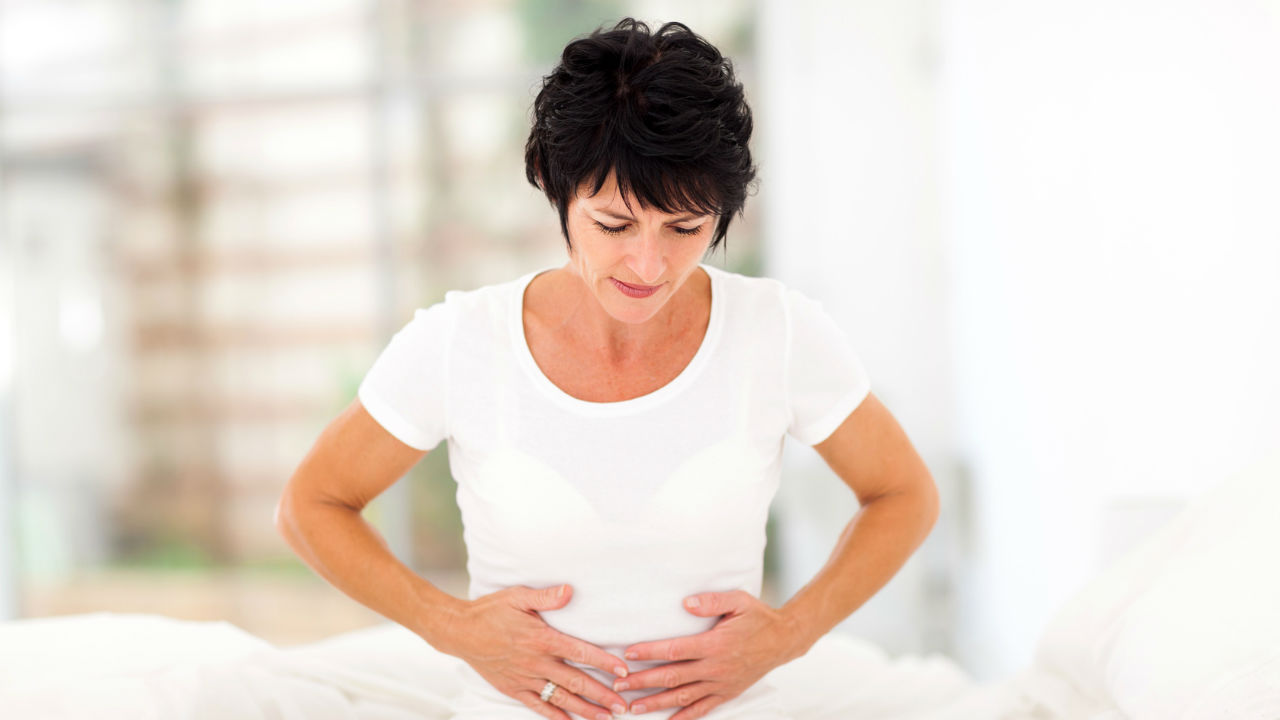Irritable bowel syndrome (IBS) is not a disease but a functional disorder of the lowest portion of the intestinal tract. About one in five Americans experience the symptoms of IBS and approximately 2.3 of all IBS sufferers are women. IBS does not affect any other system in the body. Women with IBS do have specific gynecological issues.
The symptoms of IBS are most prevalent from the onset of puberty through the end of menopause. Studies have demonstrated a higher prevalence of gynecological disorders, such as dysmenorrhea, which is painful uterine cramping during menstruation, and premenstrual distress syndrome in women with IBS than in women without IBS. Almost half of all women with IBS report an increase in diarrhea, gas, and abdominal pain during their periods. The severity of IBS symptoms appears to decrease after menopause. (1) It is not clear how the hormonal changes in the menstrual cycle cause the increase in symptoms. Women with IBS may suffer from dyspareumia, which is pain during intercourse. There is an increased incidence of IBS in women who suffer from chronic pelvic pain. (2)
Women with IBS are more likely to be diagnosed with endometriosis than women who suffer from other bowel symptoms. Endometriosis is a condition in which the mucus membrane that lines the uterus is present and functioning in the ovaries and other parts of the body.Over 50 percent of women who consult a gynecologist for the complaint of lower abdominal pain have IBS. Women with IBS are three times more likely to have a hysterectomy than women without IBS. (3)
The faculty and investigators at the University of North Carolina Center for Functional GI and Motility Disorders in Chapel Hill, North Carolina conducted a national survey to study the effect of female hormones on the symptoms of IBS. They found that oral estrogen and progesterone supplements appear to have no effect on IBS symptoms. Hysterectomy and tubal ligation procedures have little impact on the severity of symptoms. In many women, there was a temporary improvement in IBS symptoms during pregnancy. No correlation was made between the severity of IBS symptoms and irregular menstrual periods. (3)
Sources:
(1) www.helpforibs.com
(2) www.mindbodydigestive.com
(3) www.med.unc.edu
Maryann Gromisch is a registered nurse with clinical experience in medical, surgical, and critical care nursing. She has experience assisting an gastroenterologist is a private practice setting.






Add a CommentComments
There are no comments yet. Be the first one and get the conversation started!